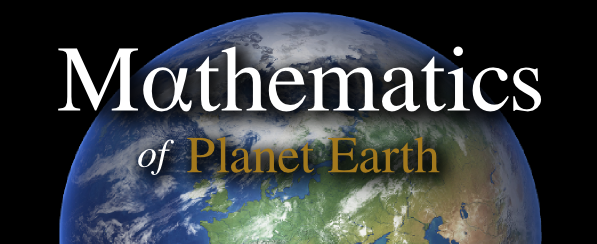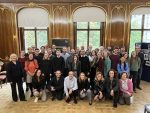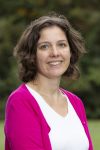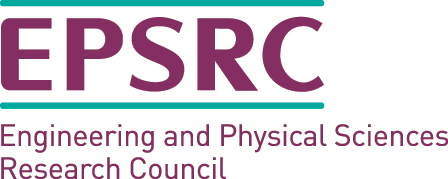In July of 2018, I set off on my first ever trip to east Asia. I was to be the first of three students from Mathematics of Planet Earth (MPE) Centre for Doctoral Training (CDT) to engage in the first research collaboration with the Hong Kong Observatory (HKO).
The opportunity had initially presented itself in April of the same year and we were told that it would probably replace the more common research collaboration with the Met Office. So, at the time, I thought it was not be for me (and foolishly I had not even bothered looking into it). But then in mid-May, at a trip to Bletchley Park, one of the programme directors approached me personally and encouraged me to consider the placement as one of the projects could be very relevant to my PhD. This was two days before I would return home to Ireland shortly after which I would to embark on a trip to India where I would virtually be unreachable for two weeks. Some very quick meetings were set up with Horatio (who had brought about this collaboration) and my supervisors. And just like that, it was confirmed that I would be one of the students attending. A final mad rush ensured that the accommodation and flights were booked before I went off the grid.
Sure, it was off to a rocky start and I was very nervous; I was going to a place where I didn’t know anyone, whose language I didn’t speak and what if I wouldn’t like the food?! Well, I need not have worried. People in Hong Kong (aka Hong Kongers) are friendly, speak at least some English and have amazing food.
During my first couple of days, I re-read the project brief and the papers Dr Lee, my HKO supervisor, had sent previously. I came up with something resembling a work plan and did some reading on what the climatology of Hong Kong was like (subtropical; hot and humid in the summer, temperate and pleasant at other times). From our first discussion, I was able to pick out three major topics on which I could work. Only one of these projects turned out how I had expected: climate variability which was the project initially proposed. It was my task to try and find if there were changes in the climate variability in Hong Kong and I could approach the question however I wanted. This project took me roughly 4-5 weeks (including the first week I had spent on reading) and so forms the most important output of the collaboration.
The second topic on which I worked was developing a heatwave definition specific to Hong Kong. Sadly, I was not able to give any conclusive results, but we did make some important strides towards the goal. Who knows maybe I will get to revisit it even if the collaboration is officially over!
The third question was to see if extreme value theory (the branch of maths that my PhD utilises) could help figure out where forecasts are poor or improve them in anyway. With only one week left to go, this didn’t come to anything.
It wasn’t always research at the HKO. Mr Choy, a scientific officer in the same department as Dr Lee, took us on three guided tours. The first time he took us around the Centenary Building where most of the staff currently work and the studio where the weather forecast is recorded (naturally, we pretended to be weather presenters and took many pictures!). He also took us to the Central Forecasting office and the 1883 building (now mainly used for administrative purposes) where there is a library/museum of sorts. He showed us cigarette boxes which had measurements inscribed on them by meteorologists during the Japanese occupation of Hong Kong when the HKO was not in operation. He also talked us through some of the instruments at the HKO (where the official temperature measurements representative of Hong Kong are made).
On another day, he took us to King’s Park which is situated about 10 minutes’ drive from the HKO and where rainfall measurements representative of Hong Kong are made. We saw some amazing instruments, from those which measure ionising radiation to those measuring evaporation. One of the duty managers talked us through them on the day.
The final tour was of the central forecasting office. We had specifically requested to observe a forecasting officer at work and also be part of the weather conference. The HKO very kindly and quickly indulged us. The weather conference happens twice each day and although I only saw one, I learnt a lot: it is not a fully automated process and the weather forecast issued to the public has a lot of input and adjustment based on staff expertise, the accuracy of the forecast as well as public perception of the HKO’s ability to forecast accurately. I think this was
the highlight of my work life at the HKO and I wish I had said something earlier and attended more of these; to me it signified what was special and unique about a placement in a meteorological office!
Unlike the fast paced and intense weather conference, the work day at the HKO, surprisingly, was relaxed. It very much resembled our PhD work life (except that there were office hours). The work week in Hong Kong is 44 hours; on Monday to Thursday, the work day for me started at 8.55 and ended at 17.45 and on Friday, the work day started at 9.05 and ended at 17.45 (this preciseness is quite representative of Hong Kong in general). One hour is allocated to lunch everyday but as interns, it was accepted that we would take about an hour and a half. Each day we would join the undergraduate interns for lunch and some 10-20 of us would eat together in a restaurant and indeed on most days we would take the 90 minutes. For the 8 and a half weeks I was there, I did not have to cook once which was delightful. Eating out was affordable and reasonably healthy. As long as you weren’t vegetarian, there were plenty of options. In doing this, we got to try different cuisines and dishes and I discovered my love of sushi!
Of course, it wasn’t all work for 8 weeks. Each weekend my colleague(s) and I would go to visit some part of Hong Kong. Each weekend was so busy and jam-packed with things to do that often the weekdays were less tiring. But to me, it felt like living the good life; you hustle during the week and in your free time, you go out, see new things and get to know people and the culture. From Chinese opera to a day at Disneyland, from the Big Buddha statue to local fishing villages, dragon dances to dragon boat festivals; I had a fantastic time.
We also did some quintessential Hong Kong hikes: the Peak loop, Lion Rock and the Dragon’s back. We climbed Lion Rock with the other interns on what was probably the hottest day during our stay (and there were some very hot and humid days). We timed it so we would reach the summit half an hour before sunset, watch the sun go down and stay to enjoy the night view of Hong Kong (said to be one of the most beautiful in the world). Looking back, this hike was the highlight of my weekend excursions (possibly my whole time).
While there were some hiccups and a bit of inconvenience from having to organise everything last minute, everything was surmountable and overall the experience was overwhelmingly positive. I must deeply thank Horatio who organised all of this and Jennifer for urging me to consider it again and of course MPE CDT for funding this collaboration. It was the opportunity of a life time (though naturally I hope there will be other amazing opportunities in my future).
Reported by Maria Jacob






